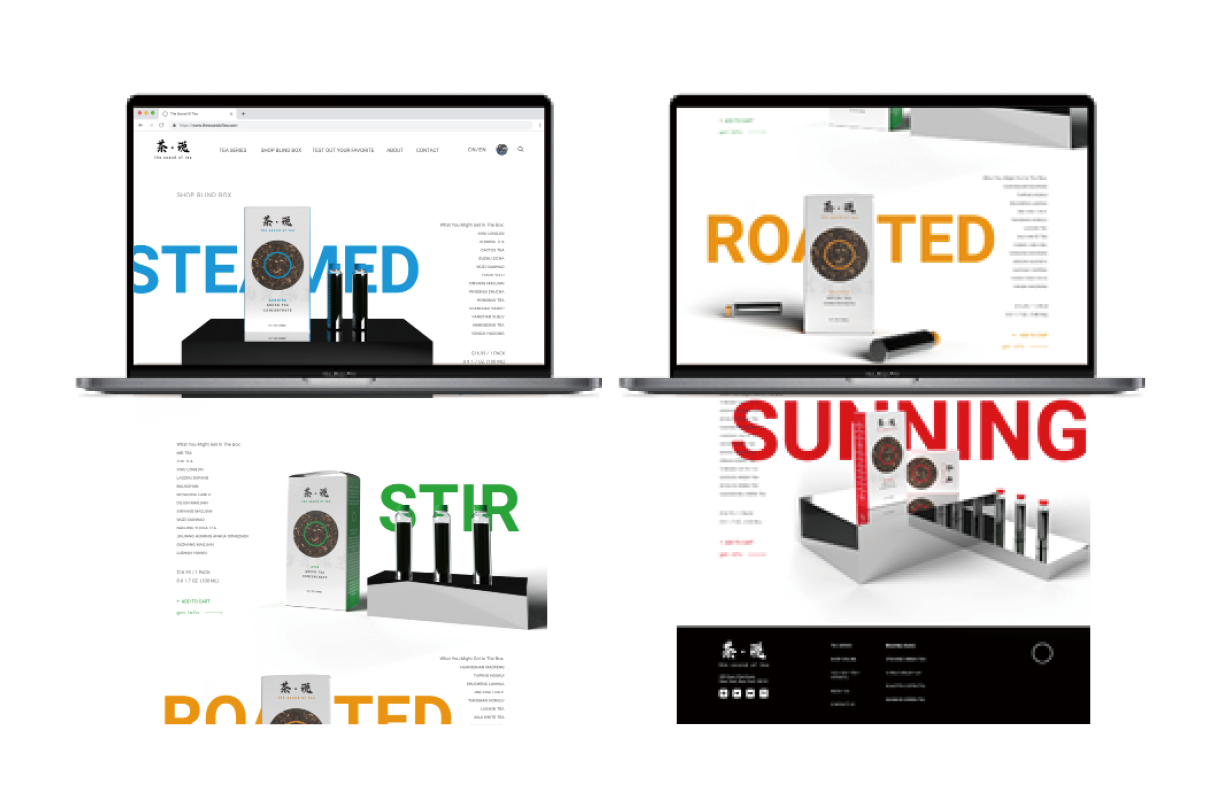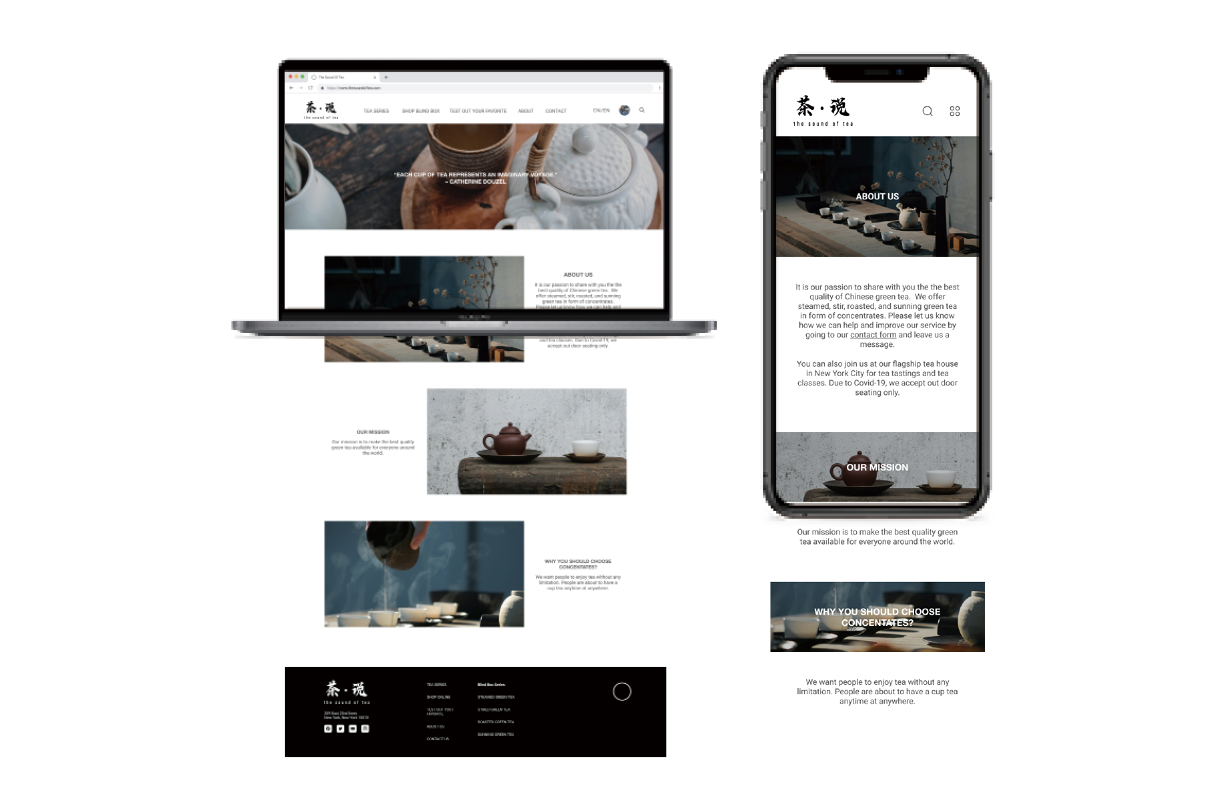 Image source: Fallery of The Dry Salon - DSEN
Image source: Fallery of The Dry Salon - DSENTHE SOUND OF TEA
The Sound of Tea offers a unique experience with their mystery boxes of Chinese green tea. Each blind box contains a surprise selection of premium tea, ensuring customers discover and enjoy high-quality tea wherever they are, at any time.

"Kill-green" is one of the most important steps of processing green tea in the Chinese tea culture. The term "kill-green" is derived from the Manderin shaqing(杀青),which means "killing the green."
Kill-green is also reffered to as "de-enzyming" or "fixing" and is a process of tea manufacture used to halt the oxidative broning of tea leaves by denaturing the enzymes responsible for oxidation-polyphenol oxidase and peroxidase.
In tea, the leaves mus be heated to approximately 150 degrees Fahrenheit to halt oxidation. The longer it takes to heat the leavse to the temperature necessary for denaturing polyphenol oxidase and peroxidase, the more aromatics will develop.
In general, there are four ways of processing tea - steamed, pan-fired, roasted (in an oven-like machine), sun-dried. The kill-green process of tea manufacture is commonly employed in the production of green, yellow, oolong, black tea when dried, and post-fermented teas.
Kill-green is also reffered to as "de-enzyming" or "fixing" and is a process of tea manufacture used to halt the oxidative broning of tea leaves by denaturing the enzymes responsible for oxidation-polyphenol oxidase and peroxidase.
In tea, the leaves mus be heated to approximately 150 degrees Fahrenheit to halt oxidation. The longer it takes to heat the leavse to the temperature necessary for denaturing polyphenol oxidase and peroxidase, the more aromatics will develop.
In general, there are four ways of processing tea - steamed, pan-fired, roasted (in an oven-like machine), sun-dried. The kill-green process of tea manufacture is commonly employed in the production of green, yellow, oolong, black tea when dried, and post-fermented teas.
(1)
PACKAGING
PACKAGING

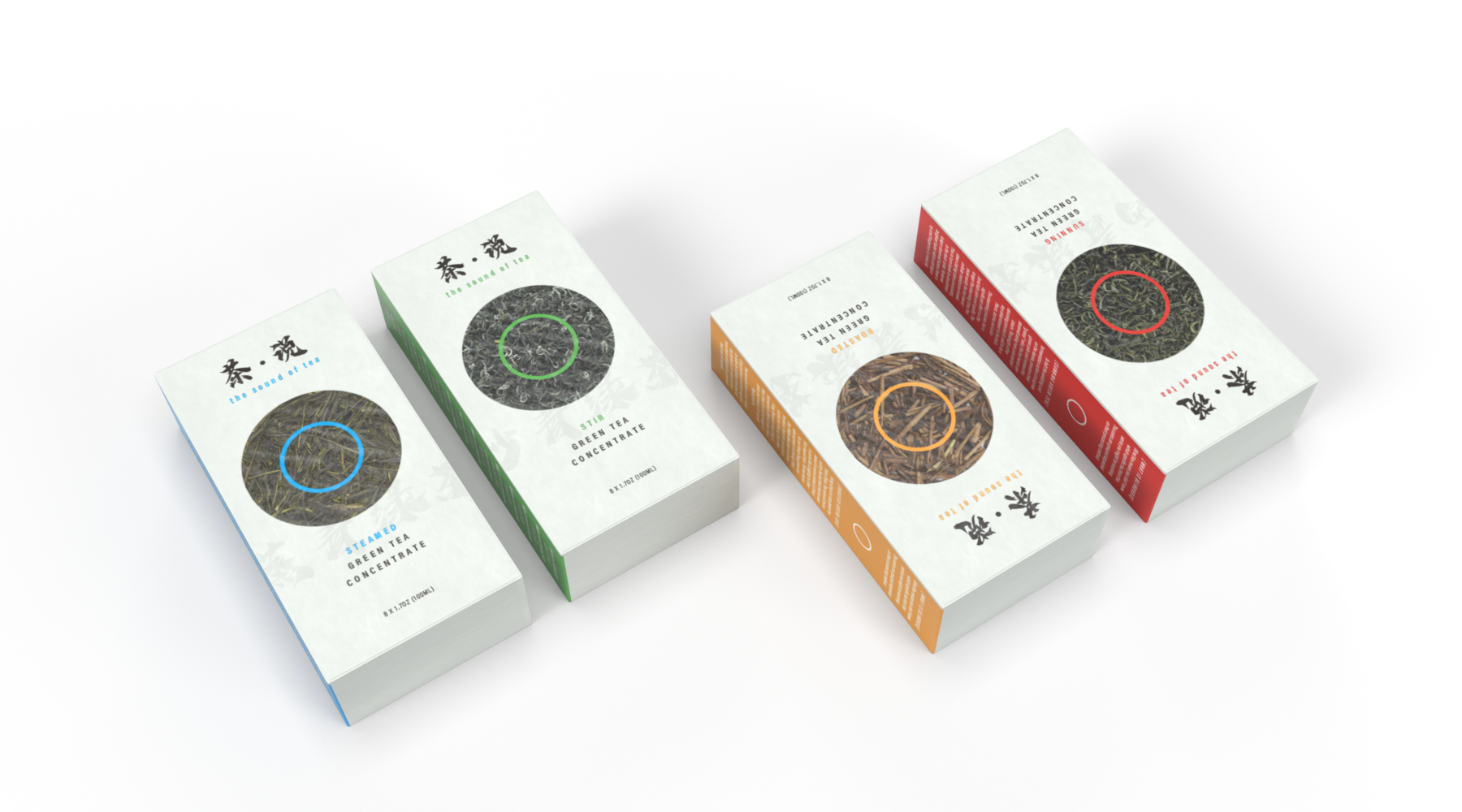

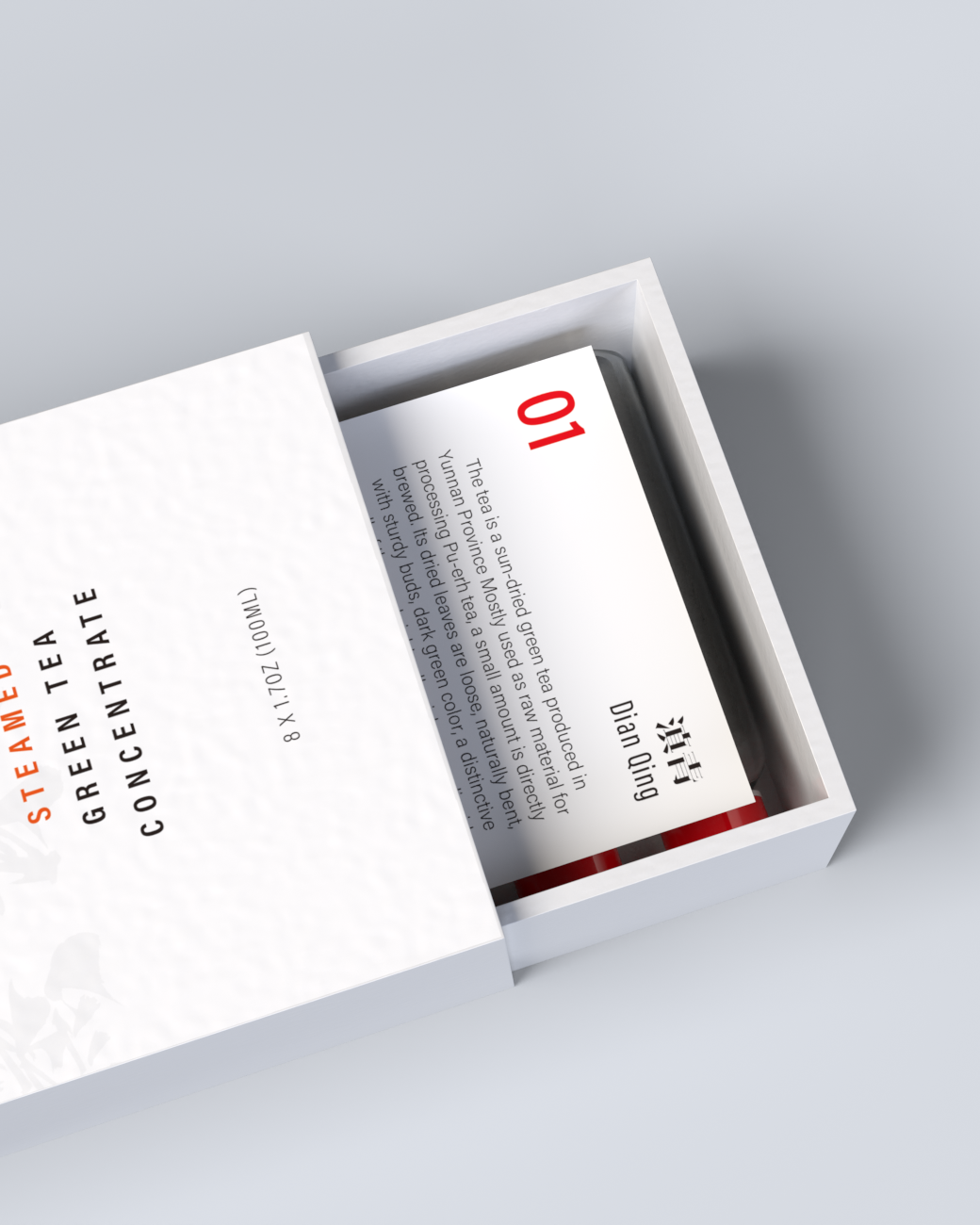

INFO CARDS
Each box contains a card that identifies the type of tea and provides detailed information for our customers. The card includes the tea's history, region of origin, cultivation method, and health benefits.
(2)
STATIONERY / BRANDED MATERIALS
STATIONERY / BRANDED MATERIALS




(3)
BILLBOARDS/POSTERS
BILLBOARDS/POSTERS



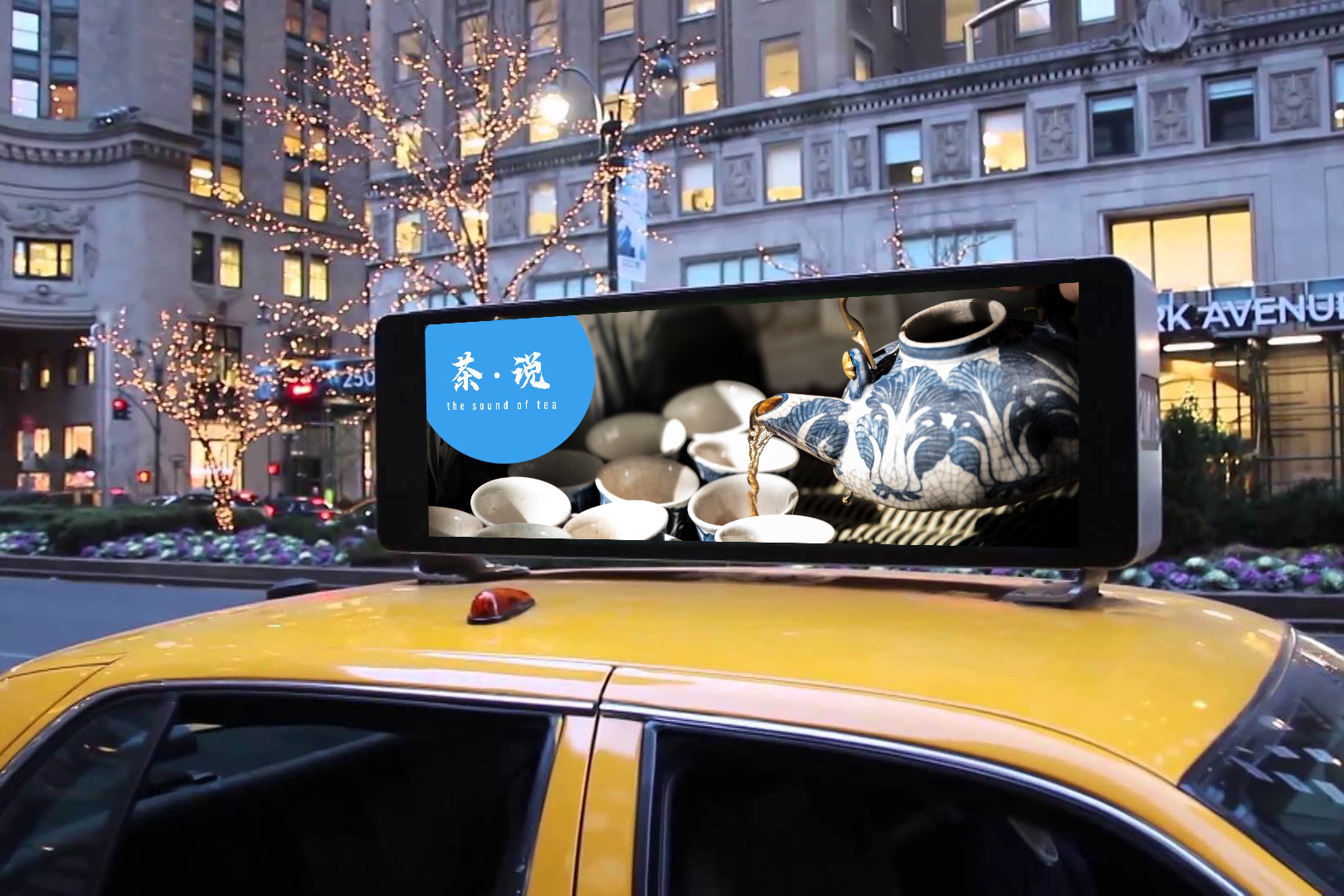




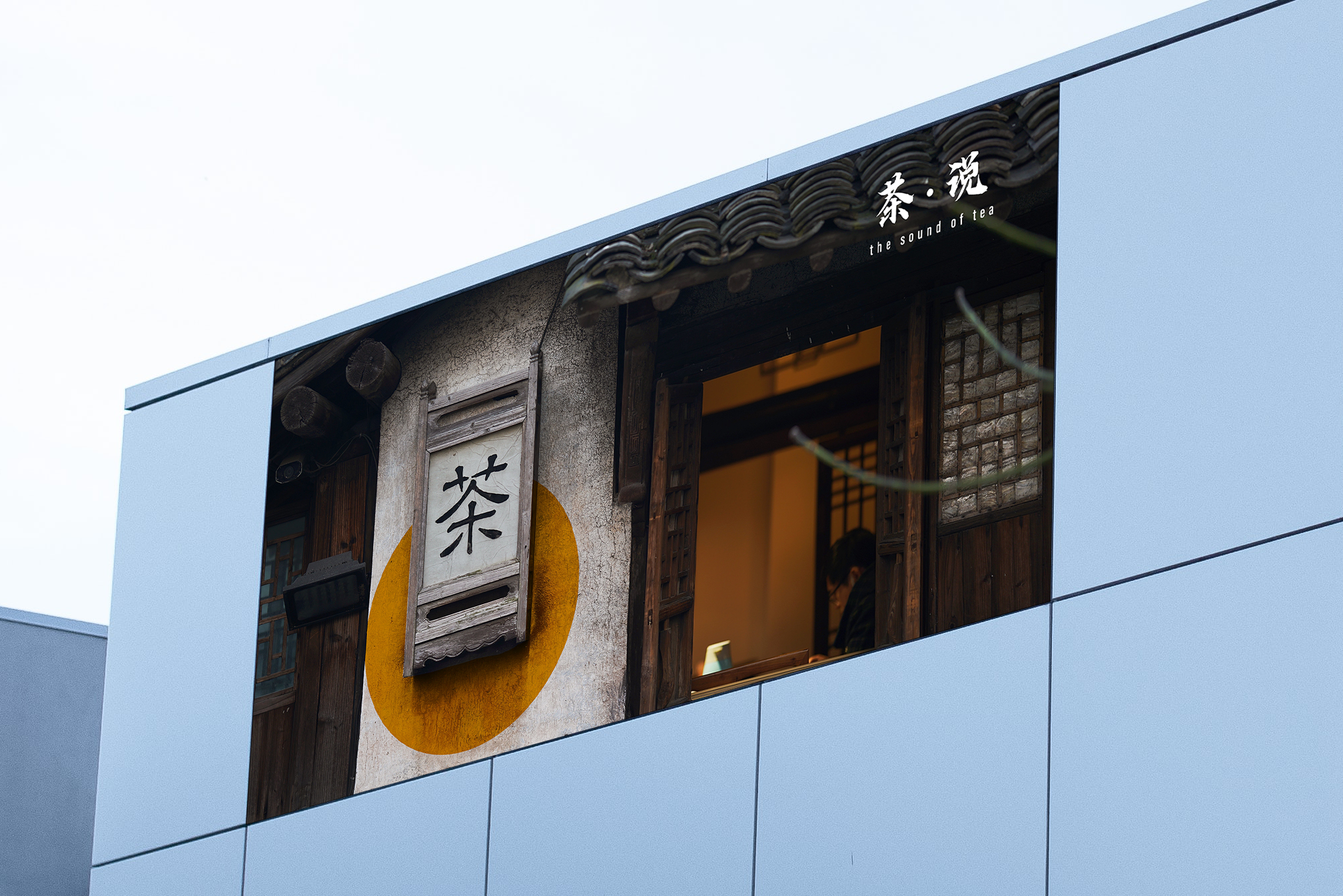
(4)
RETAIL STORE
Image source: Fallery of The Dry Salon - DSEN
RETAIL STORE
Image source: Fallery of The Dry Salon - DSEN




(5)
WEBSITE
WEBSITE


